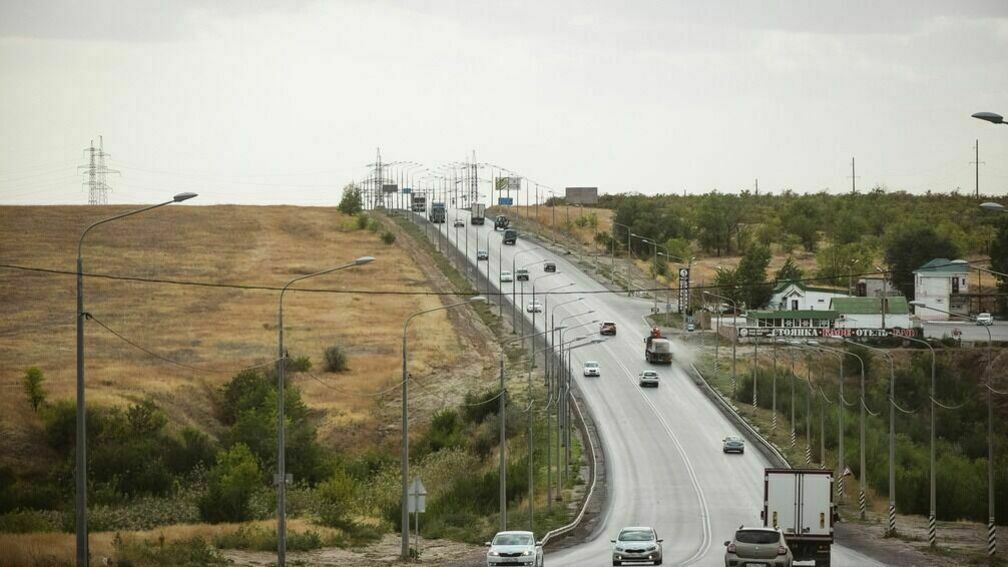
Driving to a blind alley. What road projects has the government shelved
Alexander Dybin
The Government of the Russian Federation updated its order issued in the summer of 2022.
It contains a list of all road projects that the federal budget intends to finance until 2027.
There was money for a number of facilities in the summer, but now, instead of construction, the authorities are ready to finance only the design and then, in a year or two. Thus, the financing of two related projects has been significantly cut. Highways "Meridian" and South-Western chords Yekaterinburg-Samara-Krasnodar.
Meridian has been discussed for more than 10 years. Initially, it was a completely private project, which was supposed to become a toll highway connecting China and Europe. It was assumed that the road would become part of the Shanghai–Hamburg route. It was supposed to enter Russia in the Orenburg region, exit in Belarus. It was stated that traffic on the highway would be more profitable than sending goods by sea through the Suez Canal. The project was estimated at 600 billion rubles. But now China–Europe transit through Russia is unlikely for political reasons. In 2022, a proposal was made to wrap the Meridian to the south and bring it to the Caspian Sea, thereby connecting China and Iran, and then the Middle East. Here, the Meridian project intersects with the Southwestern chord Yekaterinburg-Samara-Krasnodar - a toll highway that should directly connect the Urals and Siberia with the resort areas of southern Russia. Previously, the cost of the chord was estimated at about 3 trillion rubles. This road is only being talked about, but now it partially intersects with the "Meridian" and they are considered in conjunction. Most likely, if they are implemented, they will output some general arithmetic.
Another long-delayed construction, which was postponed again, is the second ring around St. Petersburg - KAD-2. The existing ring road is already at the capacity limit. The second ring was promised to be handed over in 2020. In the summer, the press service of the government of St. Petersburg announced plans to launch the road by 2027. There were several tracing options. But as a result , there is no project yet and there will not be any in the coming years .The government has postponed the financing of project work for 2027. In addition, the design of an interchange that will connect the M-11 Neva toll road Moscow - St. Petersburg and Pulkovo Airport has been postponed.
Several projects of work to eliminate "bottlenecks" on federal highways around Moscow, which slowed down traffic, were cut. The funding for the bypass of Orekhovo-Zuevo in the Moscow region and the southern bypass of Krasnodar was reduced. Both projects will receive one and a half billion, this money will be enough only for projects.
In addition, funding for the repair of several highways in the metropolitan region is shifting. The M-1 "Belarus" section in the Kubinka area will be repaired only in 2025. The repair of the M-3 "Ukraine" section at the entrance to Maloyaroslavets is being shifted. In addition, the financing of design works for the construction of the M-7 Volga highway, which involve bypassing six settlements, including Naberezhnye Chelny, has been postponed.
The Moscow-Kazan highway has risen in price by 100 billion
But in the updated plan, there are regions that not only did not lose funding, but even received additional money. For example, in the list of objects there were projects bypassing Khasavyurt and Derbent, which were not yet in the queue for financing in the summer. This is also part of the new focus of Russian logistics towards Iran and the Middle East.
More money will be spent on the Black Sea zone - bypassing Adler has risen in price by 20 billion in six months and now costs 70 billion rubles. The project to bypass Togliatti with a bridge across the Volga became more expensive.
In addition, the amount of costs for perhaps the only grandiose road project, the Moscow-Nizhny Novgorod-Kazan high-speed road, has been specified. This section of the international transport corridor Europe "Western China" will cost 900 billion rubles. Back in the summer, an amount of 800 billion was called. In addition, the construction of the continuation of this route from Kazan to Yekaterinburg and Tyumen, which duplicates the difficult mountainous section of the M-5 Ural highway, which drivers call the “death road”, is in full swing.
The Government of the Russian Federation noted that in monetary terms, the road works plan has not changed, as in the summer costs are planned at the level of 13 trillion rubles.
"The amount of federal budget funds that are planned to be allocated for the modernization, expansion and construction of highways will amount to more than 5 trillion rubles. At the same time, the total amount of financing of the plan, taking into account funds from the National Welfare Fund, regional budgets and extra-budgetary sources, will exceed 13 trillion rubles", - the Government of the Russian Federation reported.